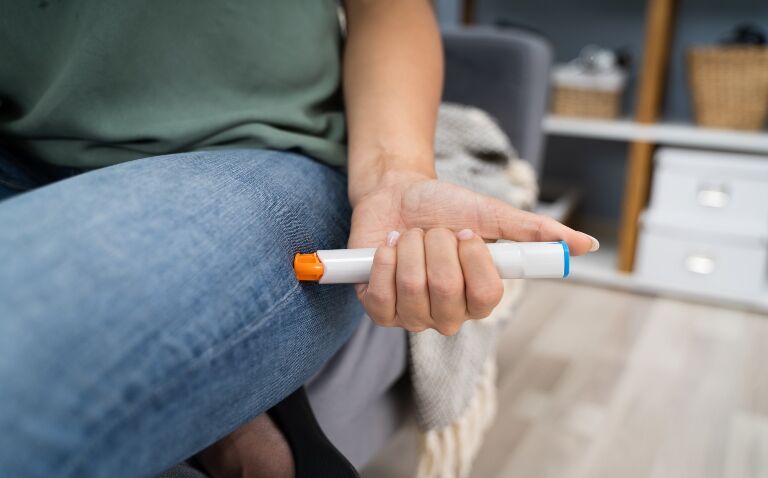The UK’s Medicines and Healthcare products Regulatory Agency (MHRA) has reinforced its emergency anaphylaxis guidance amid a doubling in hospitalisations in England over the last 20 years.
The most recent NHS England figures show 25,721 allergy-related hospital admissions in 2022/23 – an increase of 108% on the 12,361 admissions in 2002/03.
For food-related anaphylaxis and other adverse reactions, the rise was even higher, climbing from 1,971 admissions in 2002/03 to over 5,000 in 2022/23.
The MHRA issued new guidance in June on how to recognise and respond to the signs of anaphylaxis and on the use of adrenaline auto-injectors.
Now, the MHRA is encouraging people to download its advice in light of this new NHS admissions data as the steps, when taken immediately in response to anaphylaxis, can be the difference between life and death, it says.
MHRA chief officer for healthcare quality and access Laura Squire said the figures highlight ‘just how serious the consequences of allergies can be, and the rising numbers of hospitalisations highlights the need to know how to act in an emergency.‘
People at risk of anaphylaxis should always carry two auto-injectors and these should be regularly checked to ensure they have not expired.
In case of an anaphylaxis emergency patients should use their auto-injector without delay and immediately contact 999.
Patients should be made to lay down flat with their legs raised, or lay on their left side if they are pregnant. If there is no improvement after five minutes, a second auto-injector should be used.
Ms Squire added: ‘Knowing how to use an adrenaline auto-injector and what to do afterwards is crucial when responding in an emergency, whether you’re having the reaction yourself or helping someone else.
‘Anaphylaxis is scary for everyone involved and when it strikes, it’s not easy to remember what the right steps are. That’s why we want to encourage everyone to download our guidance now so they can be confident they’re doing the right thing if they’re ever in that situation.’
Aversion of this article was originally published by our sister publication Nursing in Practice.










